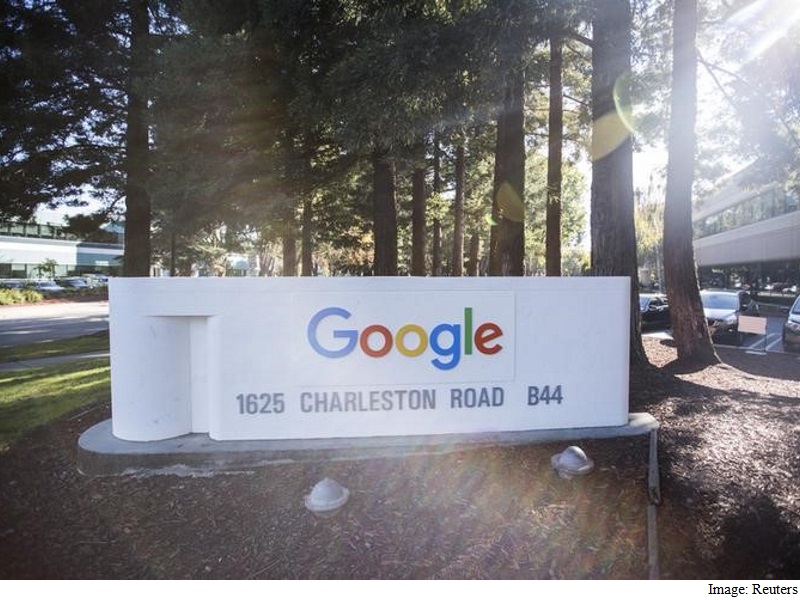- Home
- Others
- Others News
- Google Said to Make Driverless Cars Unit an Alphabet Company
Google Said to Make Driverless Cars Unit an Alphabet Company

Google's autonomous vehicles have logged more than 1 million miles (1.6 million kilometers) on public roads, mostly around San Francisco and Austin, Texas, making these cities logical places for launching a service, said the person, who asked not to be identified because the plans are private. The fleets which would include a range of large and small vehicles could be deployed first in confined areas like college campuses, military bases or corporate office parks, the person said.
The race to develop a self-driving vehicle fleet has intensified since February when Bloomberg reported that Google was developing a rival to Uber Technologies, most likely in conjunction with its driverless-car project. Uber is pursuing its own autonomous capabilities, while automakers are deploying semi-autonomous technologies while experimenting with so-called shared mobility.
(Also see: Google Denies Report It's Readying a Ride-Sharing Service)
By challenging ride-sharing pioneers like Uber and Lyft, as well as traditional taxis, Google is providing the clearest indication yet how it plans to make money from self- driving automotive technologies that it began testing in 2009. Google spokeswoman Gina Scigliano declined to comment.
While polls show a third of US consumers are interested in buying self-driving cars, the rest are skittish because they're worried about losing control, said Thilo Koslowski, vice president and automotive practice leader at Gartner.
"These potential ride-for-hire services could allow consumers to experience the technology and embrace it in a bigger way," he said. "That would help not just Google but the entire industry."
In August, the Mountain View, California-based company reorganized itself into a conglomerate called Alphabet. The company said it plans to spin out several of its advanced- technology units into stand-alone companies within the Alphabet portfolio, including its robotics division, its health-care company Verily, the Google Ventures and Google Capital investment firms, Google, the search-engine company, and Nest, which produces intelligent smoke alarms and thermostats. The self-driving car unit now resides in the research division called Google X.
In September, Google X hired John Krafcik, an auto-industry veteran, as chief executive officer of its cars project. Krafcik was then working as president of TrueCar Inc., the online auto- shopping service. He'd previously been a senior sales executive at Hyundai Motor Co. and a truck engineer at Ford. He didn't respond to an emailed request for comment.
When announcing Krafcik's hiring in September, Google said it had no immediate plans to make self-driving cars a free- standing business unit, but that it was "a good candidate to become one at some point in the future." Google executives have said they have no plans to mass-produce cars and trucks.
In the meantime, Uber is spending some of the more than $10 billion (roughly Rs. 66,648 crores) it has raised in private markets to develop self-driving cars. Uber has recruited dozens of autonomous-vehicle researchers from Carnegie Mellon University's robotics program and in June hired Brian McClendon, Google's former vice president of engineering, to run Uber's Advanced Technologies Center. But Chief Executive Officer Travis Kalanick acknowledged at a conference in October that Google has the lead in developing a robot car.
Google executives have said they're interested in self- driving cars primarily to reduce traffic accidents, which claim about 33,000 lives in the United States each year.
Google and Alphabet co-founder Sergey Brin suggested in September that self-driving cars could first appear in the form of a service, saying it would let a lot of people try the technology and that having "the vehicle come back to us every day" meant Google could rapidly update the machines.
Besides offering its own ride-for-hire service, Google probably will to try to capitalize on self-driving research in two other ways, said Mark Boyadjis, an analyst at IHS Automotive. First, the company may pump the same ads into self- driving cars that appear on Google's search engine, and second, it may be able to profit through licensing arrangements that let traditional automakers participate in its ride-sharing and other self-driving services, he said. That presents the automakers with a difficult choice, Boyadjis said.
"There are reasons to work with Google and also reasons to want to keep them out of the mix," he said. "If the automakers aren't careful, customers won't be having a Lexus experience. They'll be having a Google experience."
Detroit automakers already are jumping into the fray. Ford Motor Co. said yesterday it will begin testing fully autonomous Fusion hybrid sedans on public roads in California next year. It's also testing a ride-hailing service called Go Ride on its Dearborn, Michigan, campus, using customized Ford Transit vans with individual seats and Wi-Fi.
At the same time, automakers are bringing more pieces of self-driving technology to market while insisting that the driver is responsible for the vehicle's operation and may need to take control of the steering wheel in challenging situations. Tesla Motors Inc. in October rolled out its Autopilot suite that can drive on well-tended highways and change lanes safely without the driver taking the wheel. General Motors Co. will offer its similar Super Cruise technology on the 2017 Cadillac CT6.
In August, Morgan Stanley analyst Adam Jonas said Tesla could triple its revenue by 2029 by launching its own on-demand mobility service. That prospect was enough for Jonas to boost his price target for Tesla to $465 from $280. The stock closed Tuesday at $221.09. Musk declined to discuss the idea when Jonas has brought it up in conference calls.
© 2015 Bloomberg L.P.
Catch the latest from the Consumer Electronics Show on Gadgets 360, at our CES 2026 hub.
Related Stories
- Samsung Galaxy Unpacked 2025
- ChatGPT
- Redmi Note 14 Pro+
- iPhone 16
- Apple Vision Pro
- Oneplus 12
- OnePlus Nord CE 3 Lite 5G
- iPhone 13
- Xiaomi 14 Pro
- Oppo Find N3
- Tecno Spark Go (2023)
- Realme V30
- Best Phones Under 25000
- Samsung Galaxy S24 Series
- Cryptocurrency
- iQoo 12
- Samsung Galaxy S24 Ultra
- Giottus
- Samsung Galaxy Z Flip 5
- Apple 'Scary Fast'
- Housefull 5
- GoPro Hero 12 Black Review
- Invincible Season 2
- JioGlass
- HD Ready TV
- Laptop Under 50000
- Smartwatch Under 10000
- Latest Mobile Phones
- Compare Phones
- Tecno Spark Go 3
- iQOO Z11 Turbo
- OPPO A6c
- Samsung Galaxy A07 5G
- Vivo Y500i
- OnePlus Turbo 6V
- OnePlus Turbo 6
- Itel Zeno 20 Max
- Lenovo Yoga Slim 7x (2025)
- Lenovo Yoga Slim 7a
- Lenovo Idea Tab Plus
- Realme Pad 3
- Garmin Quatix 8 Pro
- NoiseFit Pro 6R
- Haier H5E Series
- Acerpure Nitro Z Series 100-inch QLED TV
- Asus ROG Ally
- Nintendo Switch Lite
- Haier 1.6 Ton 5 Star Inverter Split AC (HSU19G-MZAID5BN-INV)
- Haier 1.6 Ton 5 Star Inverter Split AC (HSU19G-MZAIM5BN-INV)

















